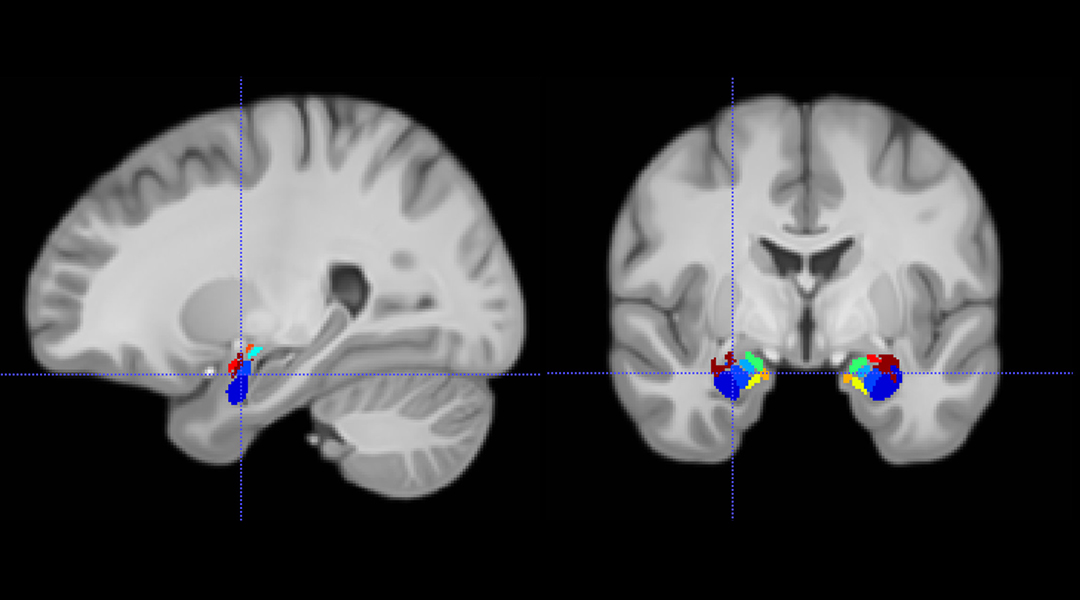Researchers have described memory as, “[…] precisely the capacity that allows us to connect experiences, learn and make sense of our lives. In short, it allows us to build our story”. Forming and storing memories is a complex process and scientists have spent years studying the structures of the brain involved and how this works.
“As scientists who study human cognition, we were inspired to investigate the neural basis of emotional memory because it is such a critical element of the human experience,” said Salman Qasim, a researcher at Icahn School of Medicine at Mt. Sinai, New York. “Personally, I can think of few things more devastating than losing touch with the memories that are important to me, for example through dementia.”
Emotional memory and mood disorders
A region of the brain called the hippocampus is key for remembering everyday personal experiences and events, as well as factual information. It is positioned next to it is the amygdala region that processes emotions, and researchers believe that such close proximity and supporting evidence means this hippocampus-amygdala brain region is crucial for forming memories of emotional events.
“Poorly regulated emotional memory can also be a critical element of mood disorders, such as depression or post-traumatic stress disorder, whose effects have seemed to grow exponentially in the last few years,” explained Qasim.
To understand how information is processed in the hippocampus-amygdala brain region, Qasim and his colleagues from Columbia University turned to studying brain waves in this region in order to understand how our brain prioritizes emotional memories.
Through recordings from implanted electrodes in this region of the brain, they found that fast moving or high frequency brain waves are linked to memorizing emotional information. These high frequency brainwaves were previously found to be associated with “good memory” formation; however, the role they played within the context of emotional memory was as of yet unknown. But understanding these mechanisms may have implications in treating and understanding memory disorders and neurological conditions such as depression, according to the team.
Unique opportunity gives rare insight
The researchers had a unique opportunity to analyze a large number of direct-brain recordings from epilepsy patients undergoing treatment. “Access to direct-brain recordings during cognitive experiments is extremely rare because it has to occur in the course of a neurosurgical treatment, such as for epilepsy interventions,” explained Qasim. “Given the scarcity of such data, it is very rare to pull off a study in which these patients not only did a cognitive task, but also underwent brain stimulation, and provided depression surveys to establish causality.”
By testing participants’ memory of certain emotional words, they were able to understand how the brain prioritizes and stores emotional memory. During testing, the researchers purposely stimulated the hippocampus to disrupt high frequency activity, which resulted in the patients not being able to remember their specified word – this helped prove this pattern is indeed needed for emotional memory.
They also demonstrated that in those with depression, these fast brain waves and emotional memory are reduced, which they believe is related to the disruption of a chemical message, known as a neurotransmitter to the hippocampus-amygdala brain region.
Future therapies
The team say they will now turn their focus toward understanding the activity of neurons during emotional memory formation in the hope that this will unlock therapeutic options for the treatment of different neurological disorders related to this mechanism.
“Could brain stimulation to reduce emotional stimuli be useful for people with post-traumatic stress disorder?” said Qasim. “Or could we tweak the stimulation parameters to reverse the effect we observed, and enhance memory for any stimuli, as if they were emotional stimuli?”
Right now, these are only theoretical possibilities and much more work is needed. For one, we may now understand more about how emotional memories are stored but still don’t know why they are prioritized. Is there an evolutionary advantage to doing so?
Emotions can help motivate people and stimulate decision making. During general communication and even in science communication, evoking emotion can help get a message across that has impact and is remembered. Still many unanswered questions remain but this study has provided invaluable data and a first step towards fully understanding our emotional memory.
Reference: Qasim, S E, et al., Neuronal activity in the human amygdala and hippocampus enhances emotional memory encoding, Nature Human Behaviour (2023). DOI: 10.1038/s41562-022-01502-8
Feature image: Magnetic resonance imaging depicting the location of a recording electrode in a subregion of the amygdala (colored regions). Credit: Salman Qasim/Columbia Engineering

















